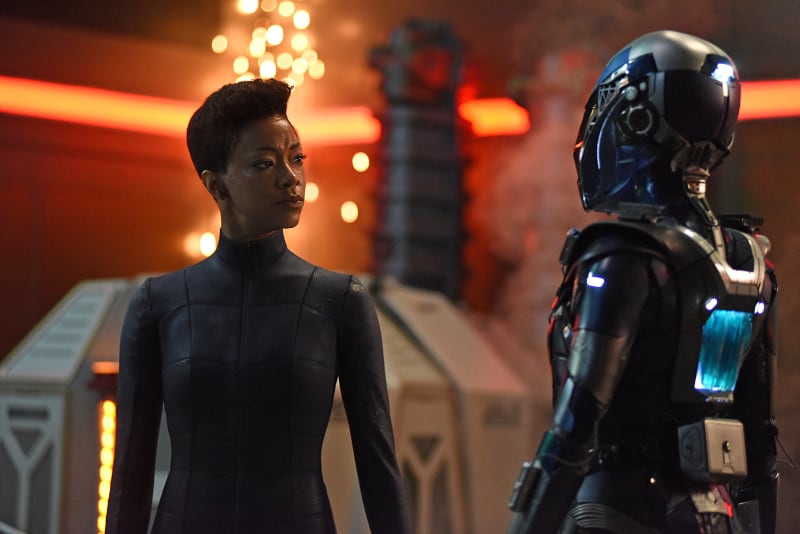Marvel Has Been Unique, Now It Is a Cultural Echo
Yesterday, Marvel Studios premiered a new streaming series on a fascinating character. I don’t plan to watch it. With Echo, Marvel has bowed to the inescapable dogma of HBO that a series must splatter blood or rip off clothes to be prestigious. Why would one of the most successful franchises in history shed the family-friendly tact that made it stand out in the explicit modern media landscape?
I’ve written about the genius of WandaVision, which I would commend to anyone regardless of your familiarity with Marvel. The first of the Disney+ streaming endeavors with Marvel, it was both an artful salute to the greatest TV shows of the past and a deeply insightful study of grief.
Planned long before COVID, the timing of its release in the middle of the pandemic could not have been better. An absolute, timely masterpiece. The subsequent The Falcon and the Winter Soldier was more straightforward superhero fare, but enjoyable and with its weighty moments. Marvel’s second gem, Loki, followed in quick succession and is brilliant in an Inception mindbending sort of way.
A lot could be said about the sweeping nature of building a universe like Marvel’s that spans 15 years and some of the biggest box office hits in history. An underappreciated aspect has been the MCU’s ability to dominate pop culture without the crutch of incessant obscenity. Storytelling, not shock, has earned these properties their relevance.
The premium cable networks’ positioning as cultural tastemakers had made it appear society only had interest in a production if it required content warnings and could never be watched by a family together. “I only watch the show for the storyline” replaced previous generations’ attempts to explain away certain magazine purchases.
Indeed, much of the fare from HBO, Netflix and the like have more in common with the shadier parts of the internet than with the great stories over the ages. Sure, the past bards delighted in subtexts, double entendres and out-of-view misdeeds, but they understood sensationalism was not a substitute for storytelling. Cultural mores served like poetic structure, with artists embracing subtly over crass scintillation.
When HBO and its ilk put big budget money behind shows that gloried in violating decency standards, they made it acceptable — even expected — for shows to lean on the crutch of over-the-top provocativeness. By the time streaming channels emerged, the die had been cast for flagship programming: if it didn’t have a TV-MA rating and make the more reserved shriek (and even the more “open-minded” squirm), it wasn’t worth talking about.
Even my beloved Star Trek, entering the streaming era, has picked up f-bombs and amped up violence. While modern Trek has much to commend it, one would be hard-pressed to argue those “freed from the FCC controls” choices make it better than the first generations of the franchise that did live under broadcast controls and captivated minds old and young alike.

Growing up with the Next Generation and Deep Space Nine, I’m glad the times were different enough that those shows could be shows that, well, someone grew up with. I watched little TV even as a teenager, but the world of Starfleet captured my imagination and still does.
That’s where the MCU felt like it was content to dwell for its first decade and its first true streaming push. While Netflix had taken Marvel properties in the salacious direction of other premium services, once Disney regained control, they seemed to chase after something parents and kids and, well, everyone could enjoy.
How nice when the older kids, the young couple and the grandparents all can genuinely enjoy a cultural moment together. (That’s even setting aside the genuine question of how much violence and sensuality anyone of any age can healthfully consume.)
Between Marvel and similarly geared Star Wars offerings, Disney stumbled upon an unserviced clientele: those who wanted well-written, well-produced stories without a constant race to dredge the bottom. What should have been obvious was demonstrated: we don’t need to voyeuristically peer into every character’s bedroom for a story to be engaging.
Many had thought Apple might target a similar market with its streamer, but the only sensibilities it worries about troubling with its content are the Chinese government’s. Disney got the “engaging stories for everyone” realm to itself and Disney+ rocketed to popularity beyond many of the longer-established players.
Which brings me to the present MCU moment. A lot could be — and has been — said about the decline of plot quality in the last year or two. What’s changed, though, wasn’t that the superheroes became prudish after years of onscreen carnage and eroticism. What changed is sloppy writing and rush-to-somehow-resolve it deus ex machina finales.
Nevertheless, instead of fixing that, we get Disney deciding to follow Netflix and the rest. We learned several months ago that Echo would be the first MCU series to pick up a TV-MA rating for significant violence. Not long before that, the Eternals and She-Hulk both started pushing towards more sexual content.
How long before the first MCU release that is outright explicit? Presumably not long: after purchasing 21st Century Fox, Disney has moved ahead with that studio’s raunchy Deadpool series.
For Disney, the answer to creating one of the most successfully launched services in history by marching to a different, less provocative drummer is to say, “Scratch that, let’s do what everyone else is doing.”
Leaving a market that is clearly in demand (see subscriber counts and, even, critical acclaim) to duplicate what all the competition is doing seems insane. At least Disney picked an appropriate title for the series that takes the next step toward that insanity.
Echo.

Timothy R. Butler is Editor-in-Chief of Open for Business. He also serves as a pastor at Little Hills Church and FaithTree Christian Fellowship.
You need to be logged in if you wish to comment on this article. Sign in or sign up here.

Start the Conversation